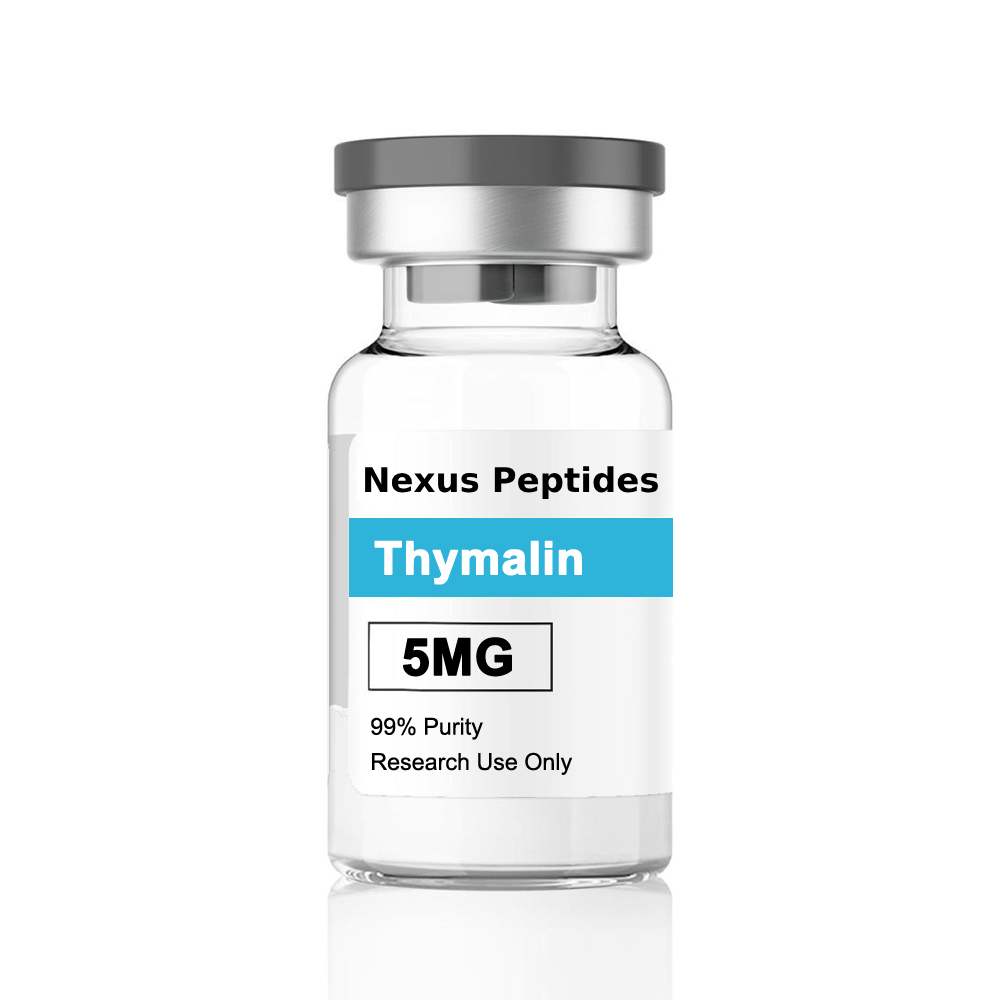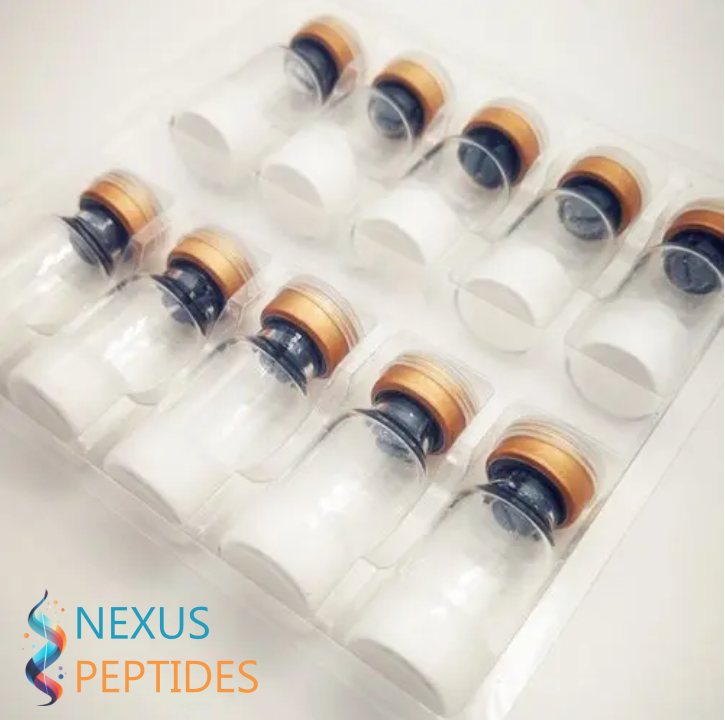Nexus Peptides
Thymalin: 5-10mg*10 vials
Thymalin: 5-10mg*10 vials
Couldn't load pickup availability
Share


Product Description: Thymalin
Introduction:
Thymalin is a peptide derived from the thymus gland, which plays a crucial role in the regulation of immune function. It is a naturally occurring polypeptide composed of amino acids that are synthesized for research purposes. Thymalin is often used in scientific studies to explore the mechanisms of the immune system, specifically focusing on the thymus gland’s involvement in immune cell differentiation and maturation. With its distinct biochemical properties, Thymalin is widely used in laboratory research to better understand the complex interactions between the immune system and various physiological processes.
What is Thymalin?
Thymalin is a synthetic peptide that represents a mixture of thymic peptides derived from the thymus gland. It is composed of bioactive fragments that are isolated and studied for their potential influence on immune responses. As an immunomodulatory peptide, Thymalin is used to investigate the function and regulation of the thymus in immune cell production and differentiation.
The thymus gland, which produces thymosin and other regulatory peptides like Thymalin, plays a critical role in the maturation of T-cells, a type of white blood cell essential for immune responses. Thymalin is studied to understand how these peptides interact with the body’s immune system and influence the development of T-cells, which are key players in adaptive immunity.
Potential Different Names:
- Thymalin
- Thymic peptide
- Thymus-derived peptide
- Thymus extract
- Thymosin-related peptide
Chemical Formula:
The chemical formula of Thymalin varies as it consists of a mixture of peptides isolated from the thymus. Its exact chemical composition can differ depending on the preparation, but it is generally composed of various amino acid sequences found within thymic peptides. Specific peptides, such as thymosin alpha-1, may be part of the mixture used in Thymalin preparations.
Structure:
Thymalin’s structure consists of a complex series of amino acid sequences that make up the thymic peptides isolated from the thymus gland. These peptides typically contain several small fragments of amino acids, each with distinct structural properties that contribute to their biological activity. The structure of Thymalin peptides allows them to interact with specific receptors on immune cells, helping to regulate immune function. The exact structure of Thymalin depends on the specific peptides that are isolated and included in a given preparation.
In research settings, the peptide mixture is often analyzed to better understand the structural features that contribute to immune modulation. The structure of Thymalin is critical for its function as a peptide that interacts with cells of the immune system, especially T-cells.
How Does It Work?
Thymalin works by interacting with various components of the immune system. Specifically, it is believed to influence the differentiation and maturation of T-cells within the thymus gland. The thymus plays a central role in the development of immune cells, particularly T-cells, which are essential for adaptive immunity. Thymalin peptides interact with the thymic tissue to regulate the production and development of these cells, which can have downstream effects on immune responses.
Thymalin is thought to exert its effects by binding to specific receptors on immune cells and modulating their activity. Research has shown that thymic peptides, including Thymalin, are involved in the regulation of immune cell function, although the exact mechanisms by which Thymalin influences immune activity are still under investigation. As a research tool, Thymalin allows scientists to explore the complex interactions between thymic peptides and immune cells, providing insight into the regulation of immune responses and the potential implications for immune-related diseases.
In laboratory studies, Thymalin is often used to study its effects on immune function, the development of T-cells, and the overall impact on the thymus gland’s activity in regulating immune responses.
Conclusion:
Thymalin is a peptide derived from the thymus gland that is widely utilized in scientific research to investigate immune system function, specifically the role of thymic peptides in T-cell development and immune regulation. Through its complex structure and bioactive properties, Thymalin provides valuable insights into the mechanisms by which the thymus influences immune responses. As a research tool, Thymalin enables scientists to explore how thymic peptides interact with immune cells and regulate immune function, contributing to the understanding of immune-related conditions and therapies.
Disclaimer:
This product description is intended solely for research purposes. Thymalin is not intended for medical use, human consumption, or therapeutic purposes. It should only be handled by qualified professionals in a controlled laboratory setting, following all relevant safety guidelines and ethical protocols. The information provided here is based on current scientific knowledge and is not intended to make any health-related claims.


